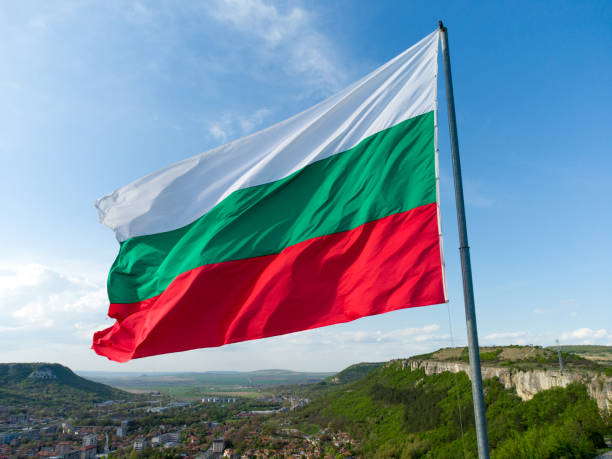Two prominent political groups in Bulgaria, namely the Movement for Rights and Freedoms (MRF) and the Citizens for European Development of Bulgaria (GERB), have jointly proposed an amendment to the Gambling Act. This proposal aims to address the growing concerns surrounding gambling-related addictions within Bulgarian society by advocating for a ban on gambling advertisements across various media platforms.
Limiting Land-based Gambling Venues
One of the key provisions of the proposed amendment is to restrict the opening of land-based gambling venues in towns with less than 5,000 residents. This measure seeks to regulate the proliferation of gambling establishments in smaller communities and mitigate the potential social and economic impacts associated with excessive gambling activities.
Comprehensive Ban on Advertising
The proposed amendment goes beyond restricting the establishment of new gambling venues by advocating for a comprehensive ban on all forms of gambling advertisements. This includes advertisements across physical and online media channels such as television, billboards, magazines, and social media platforms. The overarching goal is to minimize the exposure of vulnerable populations, particularly youth, to gambling-related content and reduce the prevalence of gambling-related addictions in Bulgarian society.
Political Advocacy and Leadership
The initiative to propose this amendment reflects a proactive stance taken by political leaders such as GERB Deputy Chairman, Temenuzhka Petkova, and Deputy Chairman of the Parliamentary Group of MRF, Yordan Tsonev. By acknowledging the detrimental effects of gambling-related addictions on individuals and communities, these leaders demonstrate a commitment to safeguarding public health and well-being.
Protecting Vulnerable Populations
Central to the rationale behind the proposed ban on gambling advertisements is the protection of young people from the harmful effects of addictive behavior associated with gambling. By restricting exposure to gambling-related content, especially among impressionable youth, policymakers aim to prevent the development of gambling-related addictions and promote healthier lifestyle choices.
International Precedents and Lessons Learned
Bulgaria is not the first country to consider implementing a ban on gambling advertisements. Several nations, including Belgium, Poland, and Italy, have already instituted similar measures to address concerns related to gambling addiction and its societal consequences. The success of these initiatives is underscored by the positive outcomes observed, such as the significant growth in iGaming gross gaming results reported by the Gaming Authority in the Netherlands following the implementation of a ban on advertisements.
Moving Forward with Purpose
The proposal to ban gambling advertisements in Bulgaria represents a pivotal step towards fostering a safer and more responsible gambling environment. By prioritizing public health and social welfare, policymakers demonstrate a commitment to addressing the root causes of gambling addiction and promoting sustainable solutions for the benefit of all Bulgarians.
Conclusion: The Discussions
As discussions surrounding the proposed amendment to the Gambling Act continue, it is imperative for policymakers to consider the long-term implications and societal benefits of implementing a comprehensive ban on gambling advertisements. By collaborating across political lines and prioritizing the well-being of citizens, Bulgaria can set a positive example for other nations grappling with similar challenges in the realm of gambling regulation.
FAQs About the Proposed Ban on Gambling Advertisements in Bulgaria
1. What prompted the proposal for a ban on gambling advertisements in Bulgaria?
The proposal was prompted by growing concerns about the increase in gambling-related addictions within Bulgarian society, as highlighted by the Movement for Rights and Freedoms (MRF) and the Citizens for European Development of Bulgaria (GERB).
2. What specific measures are included in the proposed amendment to the Gambling Act?
The proposed amendment seeks to restrict the opening of land-based gambling venues in towns with less than 5,000 residents and advocate for a comprehensive ban on all forms of gambling advertisements across various media platforms.
3. What is the rationale behind restricting the opening of land-based gambling venues in smaller communities?
Limiting the establishment of gambling venues in smaller towns aims to regulate the proliferation of such establishments and mitigate the potential social and economic impacts associated with excessive gambling activities in these communities.
4. How extensive is the proposed ban on gambling advertisements?
The ban encompasses all forms of gambling advertisements, including those disseminated through physical and online media channels such as television, billboards, magazines, and social media platforms.
5. What is the primary objective of implementing a ban on gambling advertisements?
The primary objective is to minimize the exposure of vulnerable populations, particularly youth, to gambling-related content and reduce the prevalence of gambling-related addictions in Bulgarian society.
6. Who are the key political figures advocating for the proposed ban?
Political leaders such as GERB Deputy Chairman, Temenuzhka Petkova, and Deputy Chairman of the Parliamentary Group of MRF, Yordan Tsonev, are actively supporting the proposed ban on gambling advertisements.
7. Are there any precedents for similar initiatives in other countries?
Yes, several countries, including Belgium, Poland, and Italy, have already implemented bans on gambling advertisements, citing similar concerns related to gambling addiction and societal consequences.
8. What positive outcomes have been observed in countries with existing bans on gambling advertisements?
Countries like the Netherlands have reported significant growth in iGaming gross gaming results following the implementation of a ban on advertisements, indicating the potential effectiveness of such measures in curbing gambling-related issues.
9. How will the proposed ban protect vulnerable populations, particularly youth, from the harms of gambling addiction?
By restricting exposure to gambling-related content, especially among impressionable youth, policymakers aim to prevent the development of gambling-related addictions and promote healthier lifestyle choices.
10. What are the next steps in the process of implementing the proposed ban on gambling advertisements in Bulgaria?
Discussions surrounding the proposed amendment to the Gambling Act will continue, with policymakers considering the long-term implications and societal benefits of implementing a comprehensive ban on gambling advertisements.


















